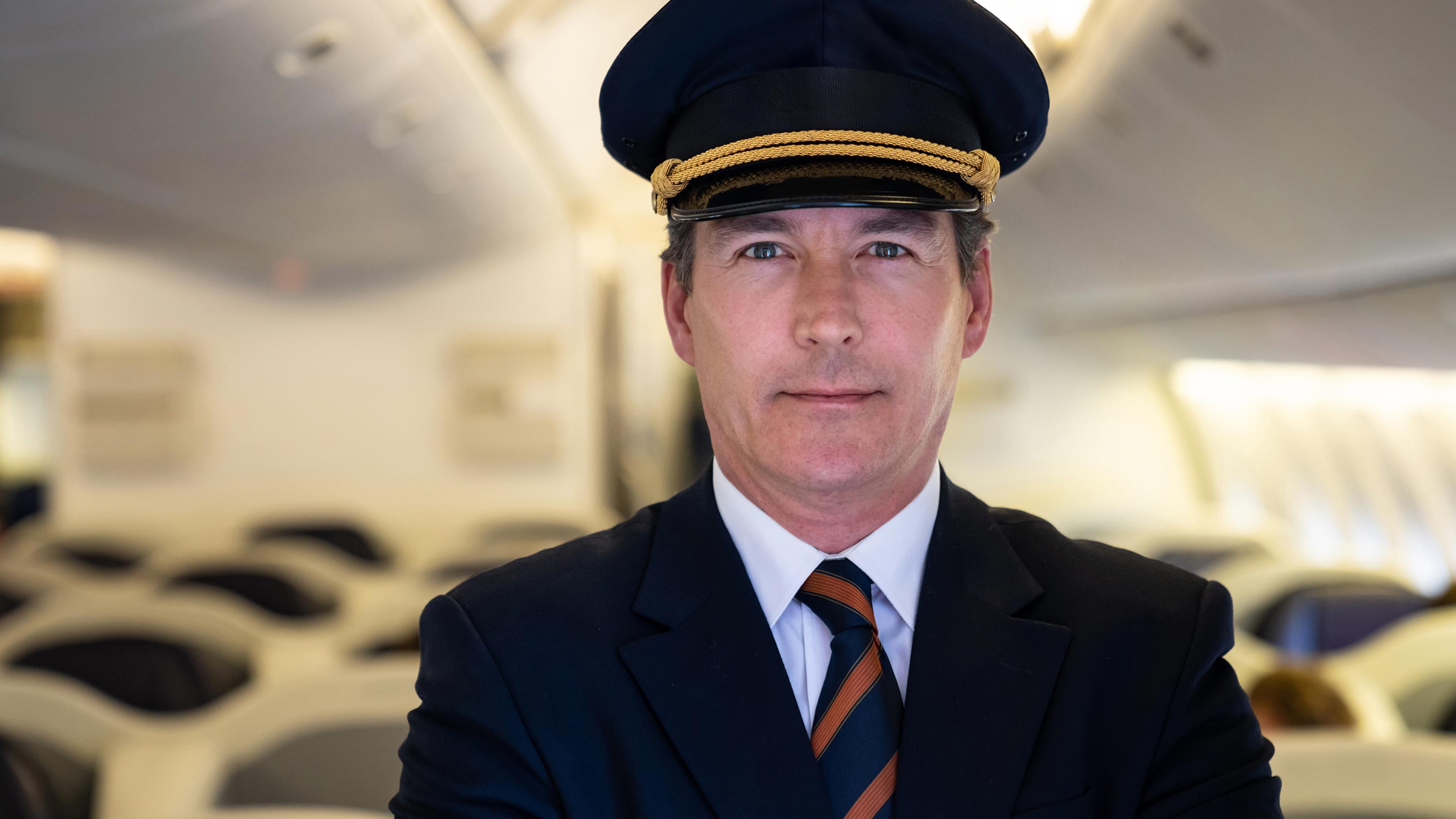For Pilots, Retirement Planning Is No Place to Wing It
Some special circumstances make pilots prime candidates for needing professional financial advice.


Profit and prosper with the best of Kiplinger's advice on investing, taxes, retirement, personal finance and much more. Delivered daily. Enter your email in the box and click Sign Me Up.
You are now subscribed
Your newsletter sign-up was successful
Want to add more newsletters?

Delivered daily
Kiplinger Today
Profit and prosper with the best of Kiplinger's advice on investing, taxes, retirement, personal finance and much more delivered daily. Smart money moves start here.

Sent five days a week
Kiplinger A Step Ahead
Get practical help to make better financial decisions in your everyday life, from spending to savings on top deals.

Delivered daily
Kiplinger Closing Bell
Get today's biggest financial and investing headlines delivered to your inbox every day the U.S. stock market is open.

Sent twice a week
Kiplinger Adviser Intel
Financial pros across the country share best practices and fresh tactics to preserve and grow your wealth.

Delivered weekly
Kiplinger Tax Tips
Trim your federal and state tax bills with practical tax-planning and tax-cutting strategies.

Sent twice a week
Kiplinger Retirement Tips
Your twice-a-week guide to planning and enjoying a financially secure and richly rewarding retirement

Sent bimonthly.
Kiplinger Adviser Angle
Insights for advisers, wealth managers and other financial professionals.

Sent twice a week
Kiplinger Investing Weekly
Your twice-a-week roundup of promising stocks, funds, companies and industries you should consider, ones you should avoid, and why.

Sent weekly for six weeks
Kiplinger Invest for Retirement
Your step-by-step six-part series on how to invest for retirement, from devising a successful strategy to exactly which investments to choose.
Despite all the commercials you see touting the importance of working with a financial planner, most Americans continue to manage their money all by themselves. And the truth is, for a lot of people, DIYing it can work out OK — until they’re closing in on retirement, that is, and need specialized help from a professional.
There are certain professions, however, that can (and should) benefit from getting advice sooner rather than later. Pro athletes and celebrities, of course, need assistance as soon as they make it big. But I’m also thinking of well-paid and busy professionals, such as doctors, lawyers and pilots.
If you’re a pilot, it may be unusual for you to see yourself grouped in with those other professions. But as a financial adviser whose office is near Chicago’s O’Hare Airport, I’ve learned you may have several of the same issues to deal with, along with other concerns that are unique to your being a pilot. And yet, many pilots are just winging it when it comes to their finances.
From just $107.88 $24.99 for Kiplinger Personal Finance
Become a smarter, better informed investor. Subscribe from just $107.88 $24.99, plus get up to 4 Special Issues

Sign up for Kiplinger’s Free Newsletters
Profit and prosper with the best of expert advice on investing, taxes, retirement, personal finance and more - straight to your e-mail.
Profit and prosper with the best of expert advice - straight to your e-mail.
Here’s why that can be a bad idea:
1. The airline industry is known for boom-bust cycles
Bankruptcies, bailouts, mergers and acquisitions are common in this competitive business and can affect your employment and benefits. So can external economic factors, like the stock market drop in 2008, and unexpected events, such as the 9/11 terrorist attacks and the COVID-19 pandemic.
Last year, Boeing’s then-CEO Dennis Muilenburg told CNBC that a growing pilot shortage was one of the biggest challenges facing the airline industry. This year, when COVID-19 caused a steep drop in consumer demand, pilots were being offered long- and short-term voluntary leave and early retirement packages. Because the job can be so unpredictable, preparation is a must. Having a financial plan in place, and an adviser who can talk you through the options, can help eliminate knee-jerk decisions.
2. You may not be ready for mandatory age-based retirement
Plenty of pilots retire before age 65. Just as with other professions, many are ready to relax or try something new. But even if you keep working, not every pilot retires with buckets of money. If you got a late start on saving and investing — maybe because you served in the military for several years, had a large amount of student debt or didn’t start earning that bigger paycheck until later in your career — you may not have the option of working longer to get your finances to the level you would like.
A financial plan can help you figure out where you are, where you need to be and how you can play catch-up to fill a potential gap in your retirement income.
3. Having to be able to renew your medical certificate every six months after age 40 could spell trouble for your finances
If your airman medical certificate exam turns up a disqualifying medical condition, you could lose your job temporarily or permanently, and also lose some important benefits for you and your family. A career change in middle age or earlier could result in a lower income. Depending on the disqualifying condition, it may be difficult to move on to another occupation. A backup plan — including an emergency fund, assets that can be tapped penalty-free if necessary and an insurance strategy — is a must.
4. The benefits are great, but helping maximize those benefits takes thoughtful strategizing
As you probably know, most airlines don’t offer pensions anymore, but many offer generous 401(k) plans, especially compared to companies in other industries. A knowledgeable financial adviser can help you manage your 401(k) in the areas of choosing traditional or Roth, selecting mutual funds, and at age 59½, performing an in-service rollover to an IRA or Roth IRA, even if you’re still on the job at that time.
5. High income expectations can lead to an expensive lifestyle
Senior pilots at the major airlines can make more than $300,000 a year, but it can take awhile to get to that level. If you are a pilot transitioning from the military, or from other jobs, it may be tempting to spend before the big money comes in, with the expectation that you will be able to pay off debts as your pay increases. A financial plan can help you set your priorities, spend reasonably and ditch your debt before retirement.
6. Spending so much time away from home and family can make it difficult to stay on top of your investments
Yes, a DIY retirement is doable, but it takes time to research the products and strategies that are available, and to follow through on the transactions. I could learn to fly, but I’ll never be as good a pilot as you are. The same is true for pilots who want to be their own financial adviser. You simply don’t know what you don’t know. None of us do. You wouldn’t go to court without an attorney, and you shouldn’t plan your retirement without wise financial counsel either. In working with an experienced financial adviser, you can be as hands-on or hands-off as you like. You can set convenient meeting times (whether in person, over the phone or via video). By choosing a financial adviser who is held to the fiduciary standard, you can be confident someone is looking out for your best interests in good times and bad when providing you with investment advice.
My advice: It doesn’t matter if you’re 30 or 40 or 50. If you’re a pilot, when it comes to your money, you should be thinking as though you’re 60 and retirement is just a short hop away. Putting together a financial plan now will help you stay on course and arrive on time.
Kim Franke-Folstad contributed to this article.
Appearances on Kiplinger.com were obtained through a paid PR program.
Investment advisory services offered only by duly registered individuals through AE Wealth Management, LLC (AEWM). AEWM and Scott Tucker Solutions Inc. are not affiliated companies. Investing involves risk, including the potential loss of principal. Neither the firm nor its agents or representatives may give tax or legal advice. Individuals should consult with a qualified professional for guidance before making any purchasing decisions. Scott Tucker Solution, Inc is not affiliated with the U.S. government or any governmental agency. 640551 — 6/20
Appearances on Kiplinger.com were obtained through a paid PR program. The columnist received assistance from a public relations firm in preparing this piece for submission to Kiplinger.com. Kiplinger was not compensated in any way.
Profit and prosper with the best of Kiplinger's advice on investing, taxes, retirement, personal finance and much more. Delivered daily. Enter your email in the box and click Sign Me Up.

Scott Tucker is president and founder of Scott Tucker Solutions, Inc. He has been helping Chicago-area families with their finances since 2010. A U.S. Navy veteran, Scott served five years on active duty as a cryptologist and was selected for duty at the White House based on his service record. He holds life, health, property and casualty insurance licenses in Illinois, has passed the Series 65 securities exam in 2015 and is an Investment Adviser Representative.
-
 The Cost of Leaving Your Money in a Low-Rate Account
The Cost of Leaving Your Money in a Low-Rate AccountWhy parking your cash in low-yield accounts could be costing you, and smarter alternatives that preserve liquidity while boosting returns.
-
 I want to sell our beach house to retire now, but my wife wants to keep it.
I want to sell our beach house to retire now, but my wife wants to keep it.I want to sell the $610K vacation home and retire now, but my wife envisions a beach retirement in 8 years. We asked financial advisers to weigh in.
-
 How to Add a Pet Trust to Your Estate Plan
How to Add a Pet Trust to Your Estate PlanAdding a pet trust to your estate plan can ensure your pets are properly looked after when you're no longer able to care for them. This is how to go about it.
-
 How to Add a Pet Trust to Your Estate Plan: Don't Leave Your Best Friend to Chance
How to Add a Pet Trust to Your Estate Plan: Don't Leave Your Best Friend to ChanceAdding a pet trust to your estate plan can ensure your pets are properly looked after when you're no longer able to care for them. This is how to go about it.
-
 Want to Avoid Leaving Chaos in Your Wake? Don't Leave Behind an Outdated Estate Plan
Want to Avoid Leaving Chaos in Your Wake? Don't Leave Behind an Outdated Estate PlanAn outdated or incomplete estate plan could cause confusion for those handling your affairs at a difficult time. This guide highlights what to update and when.
-
 I'm a Financial Adviser: This Is Why I Became an Advocate for Fee-Only Financial Advice
I'm a Financial Adviser: This Is Why I Became an Advocate for Fee-Only Financial AdviceCan financial advisers who earn commissions on product sales give clients the best advice? For one professional, changing track was the clear choice.
-
 I Met With 100-Plus Advisers to Develop This Road Map for Adopting AI
I Met With 100-Plus Advisers to Develop This Road Map for Adopting AIFor financial advisers eager to embrace AI but unsure where to start, this road map will help you integrate the right tools and safeguards into your work.
-
 The Referral Revolution: How to Grow Your Business With Trust
The Referral Revolution: How to Grow Your Business With TrustYou can attract ideal clients by focusing on value and leveraging your current relationships to create a referral-based practice.
-
 This Is How You Can Land a Job You'll Love
This Is How You Can Land a Job You'll Love"Work How You Are Wired" leads job seekers on a journey of self-discovery that could help them snag the job of their dreams.
-
 65 or Older? Cut Your Tax Bill Before the Clock Runs Out
65 or Older? Cut Your Tax Bill Before the Clock Runs OutThanks to the OBBBA, you may be able to trim your tax bill by as much as $14,000. But you'll need to act soon, as not all of the provisions are permanent.
-
 The Key to a Successful Transition When Selling Your Business: Start the Process Sooner Than You Think You Need To
The Key to a Successful Transition When Selling Your Business: Start the Process Sooner Than You Think You Need ToWay before selling your business, you can align tax strategy, estate planning, family priorities and investment decisions to create flexibility.